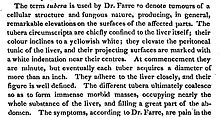
American and British English spelling differences - Wikipedia, the free encyclopedia
In the early 18th century, English spelling was not standardized. Differences became noticeable after the publishing of influential dictionaries. Today's British English spellings follow, for the most part, those of Samuel Johnson's A Dictionary of the English Language (1755), whereas many American English spellings follow Noah Webster's An American Dictionary of the English Language (1828).



 Your new post is loading...
Your new post is loading...









American and British English spelling differences...